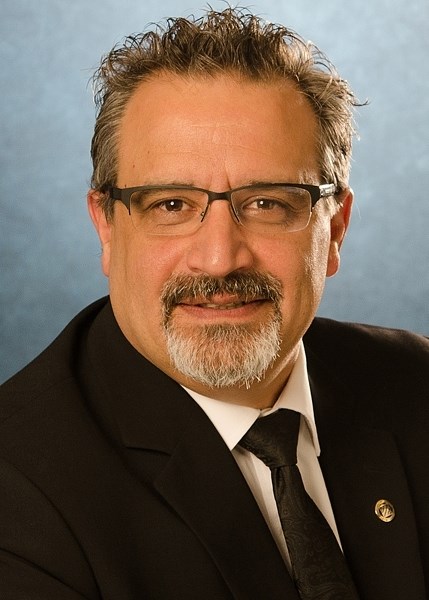Mark Ramsankar is ready to lead the Canadian Teachers' Federation (CTF).
Ramsankar was elected president designate of the Canadian Teachers' Federation on July 15 during the CTF annual general meeting in Montreal.
He will serve in that position (as designate) for one year, effective July 1, before assuming the office of CTF president in Ottawa for a two-year term.
The first CTF president from Alberta since 1979, Ramsankar will focus his sights on ensuring public education is supported in every aspect, from teachers, to the framework that encompasses education at every level, both urban and rural.
“Rural education is vital. When you talk about the school in the small community, it becomes a hub -- it's what will draw families in the surrounding area to that town or smaller site,” said Ramsankar. “The school becomes a vital component of a rural community.”
Ramsankar said communities must find the balance between keeping that hub alive and providing an educational opportunity for the children that live there.
“There's a balance that needs to be found, (but) we have to be cognizant about some of the costs that are associated with it,” he added.
Ramsankar brings several years of experience to his new role. He was elected the Alberta Teachers' Association (ATA) president in 2013 and prior to that served four years as one of two ATA vice-presidents. He has also served as one of four CTF vice-presidents since 2012, during which time he was the voice of Alberta teachers within the national organization, chaired a diverse range of committees, and contributed to the leadership of three separate Canadian delegations at the International Summit on the Teaching Profession.
In his new role as president, there are several areas that Ramsankar wants to address.
“One of the big issues that we're facing in Canada is the structure of Canadian education,” he said, noting the important role of the CTF. “We look at the common threads between the national scene and the impact that the global education market has on education in our province,” explained Ramsankar. “There are common threads among the provinces in terms of issues that impact us. One of the major problems we're facing right now is the global education reform (movement), GERM as it's called, which has come in and has started to look at schools and school systems through an economic lens.
“If you look at the delivery of education strictly through an economic lens as cost effective, you end up with the question of viability for rural schools and that's not fair to rural schools,” he said.
Those details include the cost of operating schools in rural Alberta.
“The view is that it costs too much to have a small school in a rural setting, but if you view it that way then you're not talking about the impact on the community and that's where the discussion has to sit,” added Ramsankar.
“To simply water it down to whether it's cost effective or not, doesn't do service to the community,” he said.
Another important area he wants to focus on is the impact of discussions on the Truth and Reconciliation council and the work being done across Canada, with a focus on the impact of the education systems with Canada's aboriginal children, and the history of aboriginal communities as part of curriculum talks he noted.
“These are going to be very important conversations and that is one that is a cross-Canada focus for all of us, that we are looking to see what we can do with the recommendations that came out of the Truth and Reconciliation organization,” said Ramsankar.
“Alberta is stepping up with its commitment to address the recommendations,” he added, noting a call to action. “It's called our education partners in Alberta together to move this file forward.”
In addition, Ramsankar noted the new bargaining model, introduced just prior to the end of the school year, being used for contract negotiations.
“We're negotiating under a new bargaining model. Rather than every local (rep) dealing with every issue directly with their school board, we're going to have discussions about provincial impact at a provincial table first,” he said. “When that round is completed we will follow that up with local bargaining.
“This is a new approach to bargaining,” said Ramsankar, noting ongoing discussions in the new process. “We want to take the time to make sure that we're doing it right because it is a new scenario.”



